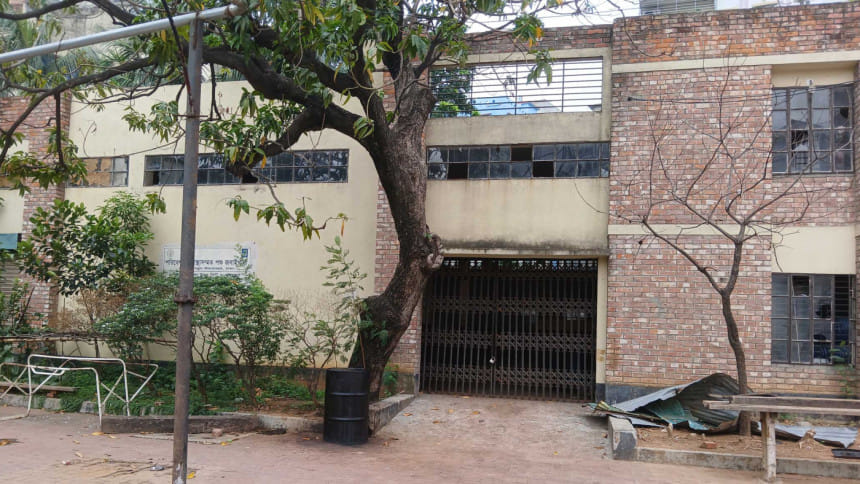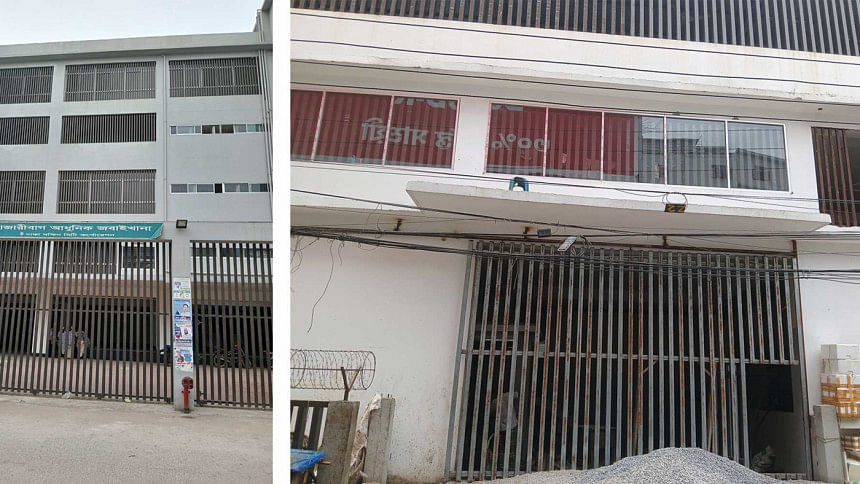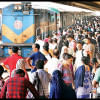Dhaka’s unused slaughterhouses

Unsafe and unsanitary animal slaughter practices often mar the Eid-ul-Azha celebrations in Dhaka.
With sacrificial animals being slaughtered in thousands on Dhaka streets, blood and other waste accumulate on them, which takes hours, if not days, to be removed. The situation further worsens if it rains during the day.
Though both Dhaka city corporations built four permanent slaughterhouses to address these issues, they remain largely unused due to residents' preference for traditional neighbourhood slaughtering and the logistical shortcomings of the designated facilities.
For the last four years, Dhaka South City Corporation has not provided logistical support for transporting animals to slaughterhouses on Eid day. Dhaka North City Corporation did not provide this service last Eid.

A VISIT TO SLAUGHTERHOUSES
During a recent visit to the DNCC slaughterhouses at Mirpur-11 and Mohammadpur Krishi Market, this correspondent found slaughter animals without any health checkups.
Meanwhile, the DSCC slaughterhouses at Kaptan Bazar and Hazaribagh, alongside the Mohakhali slaughterhouse of DNCC, were all found shut.
Construction of the Kaptan Bazar slaughterhouse, which began in 2018 and was supposed to be completed in 2019, is still ongoing.
Despite completing construction in September 2022, DSCC has failed to start operations at the Hazaribagh slaughterhouse. The project cost was Tk 79.71 crore.
The Mohakhali slaughterhouse, built around seven years ago, remains locked with no initiatives to make it functional.
WHAT AUTHORITIES SAY
The DSCC slaughterhouses are equipped with semi-mechanical equipment, according to a DSCC official. The upgraded design will enhance sanitary conditions and increase daily slaughtering capacity nearly fourfold compared to conventional slaughterhouses.
Hazaribagh will handle up to 1,200 cattle daily, while Kaptan Bazar's capacity will be around 600 cattle a day, he said.
The capacity for goats at each facility is about twice that of cattle.
Another DSCC official said 98 percent of the work on the Kaptan Bazar slaughterhouse has been completed, and they aim to complete the project by June 25.
The total project cost is around Tk 36.50 crore.
Meanwhile, the Hazaribagh slaughterhouse remains non-operational as DSCC failed to receive satisfactory bids, said DSCC state officer Md Moniruzzaman.
DSCC invited two tenders, with lease prices set at Tk 8.56 crore initially and Tk 6.15 crore later, but no offers were received.
"We are waiting to revise and lower the rate to attract bids for its operation and are preparing for another tender," Monir said.
Another DSCC official said while many organisations show interest, they lack prior experience in large-scale meat production and management.
DNCC Mayor Md Atiqul Islam said the Mohakhali kitchen market, near the Mohakhali slaughterhouse, was converted into a Covid-19 hospital during the pandemic. He noted that the slaughterhouse has not been used since then. "People are not interested in bringing their animals to slaughterhouses. However, I recognise the need for a modern slaughterhouse. We are holding stakeholder meetings in this regard," he said.
He said poor response during previous Eids is the reason why the service of designated slaughterhouses was not provided last Eid.

 For all latest news, follow The Daily Star's Google News channel.
For all latest news, follow The Daily Star's Google News channel. 








Comments